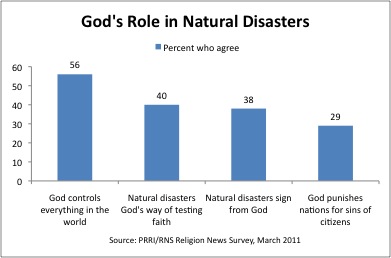 We are looking at 4 reasons the Bible is unique. Here is a brief summary of where we have been so far:
We are looking at 4 reasons the Bible is unique. Here is a brief summary of where we have been so far:
- The Bible is unique because it reveals mimetic rivalry and the scapegoat mechanism.
- The Bible is unique because it reveals how Jesus fulfills not just Scripture, but all religious writings
- The Bible is unique because it is the most violent religious text in the world
This leads us to the fourth reason the Bible is unique:
4. The Bible is unique because it is uniquely human.
Yes, every book in the world is a human book, but the Bible is a uniquely human book. Let me explain what I mean.
Usually when theologians say that the Bible is a human book, they mean that the Bible has human authors who use human words to discuss human ideas to human readers with human ways of thinking. When speaking this way about Scripture, most theologians are about to say that as a result of the Bible being a human book, it should not surprise us to discover that the Bible has errors.
I intend to make no such claim.
I do, however, agree that the Bible is a human book.
It is not that the Bible is in error. No, quite to the contrary, the Bible accurately reveals to us what is in the heart of man. God knows what is in the heart of men (Jer 17:10; 1 Cor 2:11), and He reveals it to us through Scripture. It is my conviction that Scripture does not so much reveal God to us as it reveals us to us. Scripture is a mirror which God puts up to our own hearts to reveal what is in man (Jas 1:23).
And what does Scripture reveal? It reveals that evil is in our human hearts. “It mirrors our best and worst possible selves” (Stark, The Human Faces of God, 218).
Humans Love to Blame God for our Evil
But more than that, Scripture reveals that when humans act upon the evil that is in our hearts, we like to blame God for our actions.
 When we are violent, we make God the scapegoat for our violence. We learned this practice from the father and mother of humanity, Adam and Eve. After they ate the forbidden fruit in the Garden of Eden, Adam blamed Eve, and Eve blamed the serpent, but both inferred blame upon God. In blaming Eve, Adam said “the woman whom You gave to be with me, she gave me of the tree, and I ate” (Gen 3:12). Adam implies that if God had not given the woman to him, Adam never would have sinned. It was God’s fault. Eve’s attempt to blame God is not so obvious, but in blaming the serpent, it seems that she implies that if the serpent had not been in God’s Garden (for didn’t God create all the animals?), or if God had given to Eve the same instructions He had given to Adam (for didn’t God only give His instructions about the forbidden fruit to Adam?) Eve would not have been deceived.
When we are violent, we make God the scapegoat for our violence. We learned this practice from the father and mother of humanity, Adam and Eve. After they ate the forbidden fruit in the Garden of Eden, Adam blamed Eve, and Eve blamed the serpent, but both inferred blame upon God. In blaming Eve, Adam said “the woman whom You gave to be with me, she gave me of the tree, and I ate” (Gen 3:12). Adam implies that if God had not given the woman to him, Adam never would have sinned. It was God’s fault. Eve’s attempt to blame God is not so obvious, but in blaming the serpent, it seems that she implies that if the serpent had not been in God’s Garden (for didn’t God create all the animals?), or if God had given to Eve the same instructions He had given to Adam (for didn’t God only give His instructions about the forbidden fruit to Adam?) Eve would not have been deceived.
Adam and Eve’s descendants learn the blame game well. Cain becomes angry when God accepts Abel’s sacrifice rather than his own (Gen 4:5), and after he kills Abel, claims that it is not he who is supposed to take care of Abel, that he is not his brother’s keeper (Gen 4:9). The implication once again is that if God wanted to protect Abel, God should have done so. Following this example, after Lamech killed a man for wounding him, Lamech says that he had more right to commit murder than Cain did, and therefore, God shouldn’t punish him, but should protect and avenge him (Gen 4:23-24).
This sort of pattern continues throughout the entire Bible, even if the human tendency to blame God is not always so evident.
This tendency to blame God continues all the way up into our own day as well. When bad things happen to us, we say, “Why is God doing this to me?” When we observe evil occurring elsewhere in the world, we wonder, “Why isn’t God stopping that evil?” When natural disasters like floods, earthquakes, and hurricanes come upon neighborhoods, towns, cities, and countries so that homes are destroyed and lives are taken, we call these horrible events “acts of God.” When people commit crimes of lust or passion against others, they often explain their actions by saying, “God made me this way. He gave me these desires. I cannot help myself.”
History reveals that humans love to blame God for the evil that is in their own hearts.
This tendency is laid bare in nearly every violent event in the Bible, which is one reason why the Bible can be said to be inspired by God. The Bible reveals to humans what we are really like. In this way, the text is also inerrant. Much of the Hebrews Bible inerrantly records not what God has done for mankind, but what mankind has tried to do for God using the weapons and ways of the world. These “failed attempts to act on behalf of God” (Stark, The Human Faces of God, 232) were done with evil in our hearts and the name of God on our lips, and thus reveal to us not so much of what is in the heart of God, but what is in the heart of men.
In this way, we can say that the Hebrew Scriptures are more of a revelation about man than a revelation about God. Though we have often thought that the Bible reveals God to us, it more accurately reveals man to us.
The Old Testament is not primarily a sourcebook for “Theology Proper,” the study of God, but is primarily a sourcebook for “Anthropology,” the study of man. The Bible reveals to man what is in the heart of man more than it reveals to man what is in the heart of God. Certainly, there is revelation about God in the Old Testament—and this is especially true once we get to the New Testament where Jesus perfectly reveals God to us—but for the most part, the Old Testament contains inspired and inerrant records of what God wants us to know about ourselves.
What does the Old Testament reveal?
The Bible reveals that we are sick, twisted, evil, and hell-bent toward violence.
But more than that, it reveals that when we lash out in violence and bloodshed toward others, we love nothing more than to blame God for this violence. We kill others and say, “God told me to.” We murder others and say, “It’s because they were evil and God wanted them dead.” When natural disasters occur, we shrug our shoulders and say, “If they hadn’t sinned so much, God wouldn’t have killed them.”

This is what we find over and over again within the pages of the Hebrew Scriptures, and which, if we are honest, we find in our own hearts as well. God is not violent; we are. But when we act upon the violence in our hearts, we make ourselves feel better by blaming God for it. These texts “remind us of the kind of monstrous people we always have the potential to become in the name of some land, some ideology, or some god” (Stark, The Human Faces of God, 232).
This is what the Old Testament texts reveal to us, and it is this perspective that Jesus affirms over and over through His own life and ministry.
Jesus not only reveals to humanity once and for all the depth of depravity that is within the hearts of men, but in Jesus, we finally see what it means to be truly human, and therefore, truly divine. While it is true that Jesus reveals God to us, we must also recognize that before Jesus can reveal God to us, we must allow Him to reveal us to us. In this way, by the most shocking of theological twists, we learn what God is truly like only after we have learned what a human is truly supposed to be. And both are revealed in Jesus Christ.


Jeremy,
Man!, what a great series of posts! It just keeps getting more and more clear as you continue to share your thoughts about the violence of God in the Old Testament. Thank you so much for everything that you do. These posts ring so true in my heart. God bless you brother.
Mark g
I am glad they have been helpful.
I actually feel the same way you do… ha! … the more I write about this topic, the clearer it gets in my own mind. It has been a long circuitous route of getting here, but I feel I am getting a bit closer.
Great Series again, Jeremy.
But you recognize that you are leaving the inerrant sector now, haven’t you?
Or let it put me this way, you frame the meaning of inerrancy differently, than the most people would, who use this word. And a problem for your view could be, that Jesus never said that the scriptures were given just to reveal us to us. He speaks still of it as the source of knowing god, didn’t he?
And you are still in the loop of explaining, why god “inspired” his scriptures with the quest of sending his people to kill thousands of people, if he meant really: don’t!
I find it easier to say: the bible is and will always be a human book, breathen by god. You will always find a mixture of god and men in the scripture. Only the true word of god, the one that became flesh, Jesus, shows us how god really is and how to see and deal with the human/ error sides of the bible.
Again greetings from germany. And keep on writing. it is very inspiring.
Jay
Yeah, it’s possible. At least, I have stopped defining “inerrancy” as defined by most inerrantists. So maybe I should be honest with myself (and them) and just stop trying to remain in that camp….
I’d agree that the Bible is a reflection of “the human condition” (for want of a better term). But 2Tim. 2:16 and 1Pet. 1:21 tell me it is, in fact, DIVINE in its origin, nature, and content. To say that “truly human” equates to “truly divine” is, even in the context in which you present it, ridiculous. Humans are finite creatures of an infinite mind and will – a mind and will which are so totally… OTHER than us (Is. 55:7-9). And to say that God is not violent ignores his wrath against wickedness (1Sam. 15 and the Revelation). The difference is Holiness. His wrath and His violence are just because He is Holy and, therefore, all His attributes are Holy as well. Believing humans can exhibit a form of Holiness. We will be ultimately Holy when glorified in eternity future. But we will never be divine.
Karl,
You raise good questions. I have attempted to address some of your concerns in various posts over the past year or so. I will also be writing a lot more about this in the future — especially the wrath of God and the book of Revelation. So stick around!
This is the first post I’ve read of yours and anyone who talks about mimetic theory I’m going to check out. Good post.
It’s sort of a complex theory, but there is lots of recent research being done in it that helps simplify and apply the theory to our reading of Scripture.
” the most violent religious text in the world.” no, muslims are
No, the Bible contains more violence than the Muslim Qur’an.
Still don’t know how you will explain Ananias and Safira?
I am not fully sure yet either! ha!
Well that is one of the biggest problem my friends counter with when I show them your articles.
I am a devout Christian. I make no excuses for my sins, other than I am stupid or selfish.
Or any number of other human weaknesses and failures. I blame God for nothing, in m ylife or in history. I thank Him for my free will and second chances. My God is a kind, loving and forgiving God. But I also know He is the most prolifivic serial killer in the history of man.
We deserved that, and I understand.
“Adam implies that if God had not given the woman to him, Adam never would have sinned.”
Well, that idea really isn’t far-fetched. There is probably a good reason that God the Son was God the Son, and not God the Twin Son and Daughter.
If God had and approved the Bible being written the way it is written, then it’s very easy to infer that he passively approves of women being treated as less dignified than men. The Bible has multiple examples of God using external agents to infirectly cause sin.